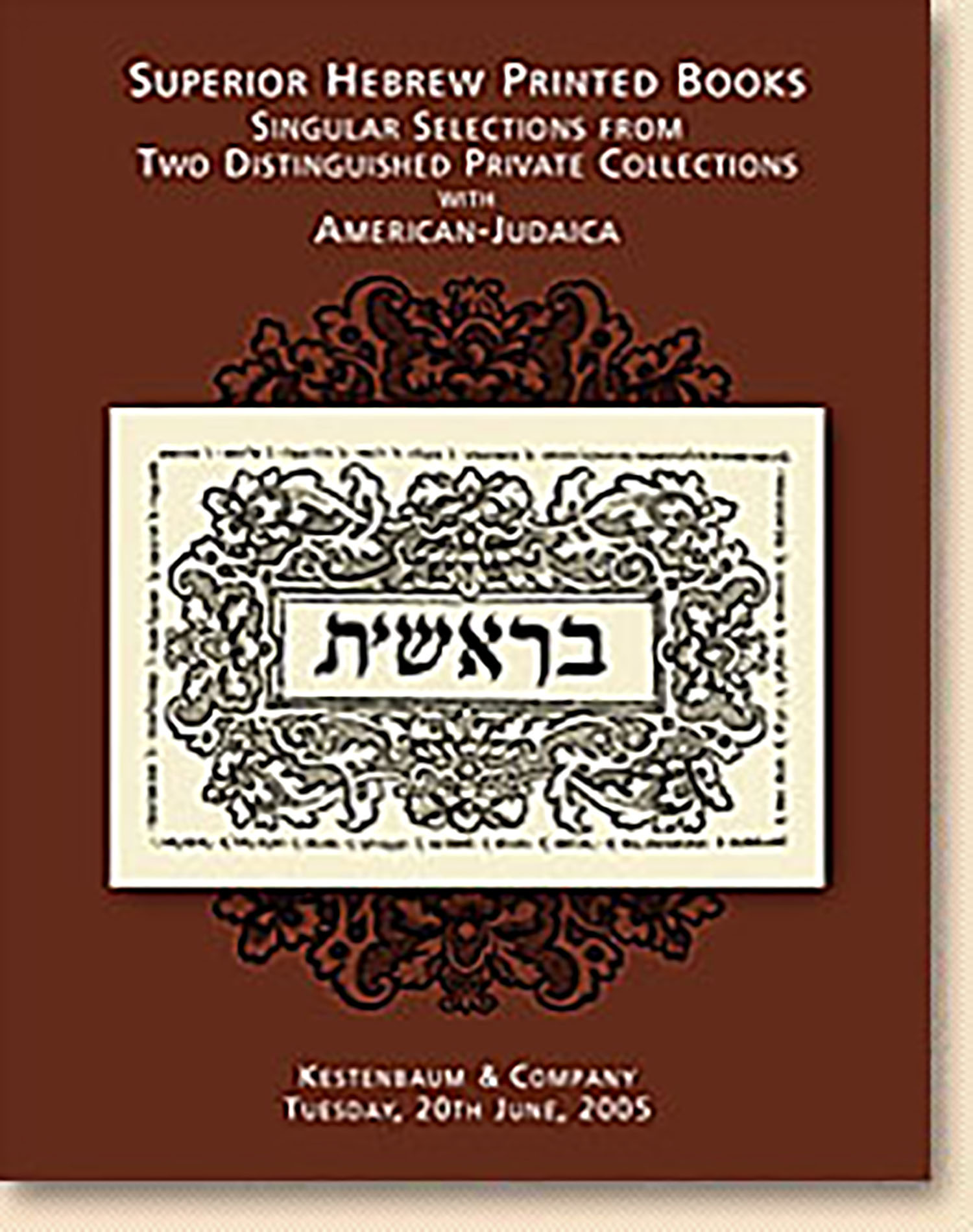(Parliamentary Act, British). An Act for Naturalizing such Foreign Protestants and others therein Mentioned, as are settled or shall settle in any of His Majesty’s Colonies in America

AUCTION 29 |
Monday, June 20th,
2005 at 1:00
Superior Hebrew Printed Books: Singular Selections from Two Distingushed Private Collections with American-Judaica.
Lot 82
(AMERICAN JUDAICA)
(Parliamentary Act, British). An Act for Naturalizing such Foreign Protestants and others therein Mentioned, as are settled or shall settle in any of His Majesty’s Colonies in America
London: John Baskett 1739
Est: $5,000 - $7,000
PRICE REALIZED $6,500
First Emancipation Act for the Jews of English America
Seeking to encourage foreigners to help populate the English colonies in America, the British Parliament passed an act enabling Colonial settlers there to become naturalized subjects after living in the colonies for seven years. Special provisions were made for Jews, as naturalization normally required the petitioner to have received communion in a Protestant church, and he was furthermore obligated to swear an oath including the words “upon the true faith of a Christian.” The 1740 act permitted Jews to become English subjects without receiving communion; it also allowed them to omit the objectionable phrase from the oath.
“That law was important . . . for it expressed a desire on the part of the English to incorporate the Jew into the body politic of and not in medieval fashion, to fence him off into a separate corporation severed from the commonalty of Christians. It was an emancipatory act, the first (apart from Dutch grants to Surinamese Jewry) to be promulgated by a European government since [ancient Rome] . . . The Act was the harbinger of a new day” (Marcus, The Colonial American Jew, Vol. I, pp. 480-9; also see Schappes, A Documentary History of the Jews of the United States, pp. 26-30).
A similar law applying to Jews living in England itself was not passed until 1753. As opposed to the 1740 act, the Act of 1753 faced much opposition, and it was repealed within the year
